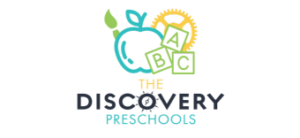Plunging into remote learning can be difficult for many families with young children. There’s stress, chaos, time management & some surprising wins. When introducing new concepts to a preschooler, sometimes it helps to have advice from a early education professional – that’s why we’re here to help! Here are 4 preschool teaching tips that can help making a “learning boom” happen at home.
1. Sing to build literacy skills
Listen to music and sing along. Whether it’s the ABCs and nursery rhymes or T-Swift, listening to — and singing along to — songs helps your child develop an ear for different words and sounds. Singing, chanting, and rhyming help kids learn new words, practice telling the difference between sounds, and even boost thinking skills. When it comes time to learn or grow their reading skills, all of these other skills will help. Try age-appropriate rhyming games and songs you may remember from childhood, such as “This little piggy,” “Itsy bitsy spider, “I’m a little teapot,” “The wheels on the bus,” and “Pat-a-cake.”
2. Ask open-ended questions to increase critical thinking skills
Parents often try to make things easy for children by asking simple questions that only require a yes or no answer. Did you have fun at the park? Yes! Can you eat your broccoli, please? No. But yes or no questions fail to promote language development. Flip the switch on your conversations by asking questions that require your child to use more and more words, starting with nouns, then adjectives and nouns, and then full sentences. For example, The legos go in here, what is this? At first, try to get your child to give the basic answer, shoe box, then see if your child can build on that over time. For example, blue shoe box, or even better, answering with a full sentence: The legos go in the blue shoe box.
3. Counting in everyday situations to foster problem solving strategies
“It’s never too early to talk about numbers and quantities. One of the first words young children learn is ‘more,'” said David Purpura, an assistant professor in the Department of Human Development and Family Studies, and senior author of the study. There are a number of ways parents can encourage math learning at home, such as talking about counting, connecting numbers to quantities and comparing values — more and less. It also helps to focus on counting as purposeful, such as “there are three cookies for a snack” rather than “there are cookies for a snack.”
4. Try new experiments promote curiosity and increase scientific reasoning
Parents can become STEM mentors by actively participating with their kids in kitchen-sink experiments. They can also become partners by contributing specimens to their child’s leaf or bug collection and then go a step farther by helping their child to categorize those treasures with the help of an illustrated website, they are modelling what scientists do. When parents curl up with their children to read a science book together and then dig out the can opener to take a closer look, they are modelling learning. And to it take a step further, families who watch age-appropriate television together — like Sid the Science Kid, Project Mc² or NOVA — parents are encouraging connections among STEM topics, everyday life, career possibilities and scientific literacy through their attitudes and actions.
- Mini M&M tubes
- Antacid tablets
- Foil
- Glue gun
- Decorations (stickers, washi tape, etc.)
- Bottle of water
- Small ball of clay (optional)
Need additional help homeschooling? We are happy to offer different curriculum ideas to help your child learn in their own optimized way. Contact kmulligan@thediscoverypreschools.com to learn more!



